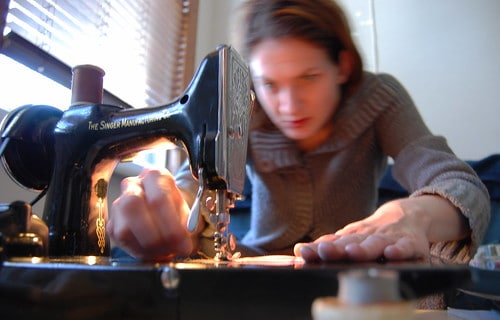Finding a financial guru
At certain stages in your financial journey, you need a catalyst to get you to the next stage. Perhaps right now you are coming out of the zeroth stage of personal finance, deep in debt and trying to take that first step to turn things around. Maybe you are debt-free, but you have no clue how to invest in the stock market. Or maybe you're at the third stage and wondering, "What do I do now?"
Guru Defined
When you aren't sure what to do, a financial guru can help you move to the next stage. Being a yoga nerd, I want to take a moment to talk about the term guru. Guru is a Sanskrit term that is often interpreted as gu meaning darkness and ru meaning light, therefore guru is the one who brings you from darkness to light. Some sources contend that since guru is an adjective that means heavy, guru means "the heavy one." Texts describe the guru as destroying the darkness, swallowing ignorance, and my personal favorite, shattering the illusion. I think you get the idea.
In those descriptions, we're talking about a spiritual guru. But a financial guru (or teacher, to be more accurate) can do similar things in your financial journey, swallowing your ignorance and shattering the illusions that you have about money and happiness.
Want to make something by hand? Sew start, already!
Recently, J.D. wrote about the value in finding something that you enjoy making by hand. As I read his post, I couldn't help but to think about my mom, who is hands-down one of the craftiest, most creative people I know. (Yes, I'm biased, but everyone who knows her agrees.)
While she can make just about anything — from floral arrangements to jewelry to gorgeous Christmas ornaments — the thing she does most these days is sew. She started her hobby as a little girl, turning scraps of fabric into Barbie clothes. Then when she had a little girl of her own (that's me!), she sewed the dresses that I wore to elementary school. The teachers bought them as soon as I outgrew them. She continued to sew clothes for me, hem pants, and fix buttons, and when I bought my wedding dress, she hemmed that, too. She also embroidered and stitched the ring pillow, among other things. Now she has come full-circle, starting her own side business creating clothing for Japanese ball-jointed dolls. Most of her dresses sell for more than $100, as these collectors are quite serious about their hobby.
Do you get what you pay for?

But it's important to consider that expense is not necessarily an indication of quality. And even when the more expensive item is of higher quality, it might not be the best buy.
The following are five examples that illustrate that the more expensive option isn't always worth the extra expense.
The balance between splurger and miser
Before I changed my habits, I spent money without much thought. In college, if I had a two-hour break between classes, I'd drive to the mall. Once I started working full time, my coworker and I would bring our lunches to work just so that we'd have the entire hour to shop. If I was bored, I'd wander into the cosmetics superstore Sephora for entertainment. Even at home I'd shop, buying online and tracking my packages until they arrived.
I thought I needed a new dress for every event I attended, new clothes from REI for every backpacking trip, and practically a whole new wardrobe if I was going out of town. I thought these new things were a way to reinvent myself or to portray the right image, but all they did was fill up my closets and bathrooms with a ton of Stuff that I'm still sorting through today. (Brokamp's article on turning clutter into cash inspired me to devote this weekend to more de-cluttering.)
These habits never put me deeply into debt, but they weren't helping me to get out, either. I was often surprised at what my total at the checkout counter, but I'd throw down the credit card anyway, too self-conscious to put anything back. I'd make a lame promise to myself to cut back, but I never did.
Resisting the Time Suck
I usually have an idea of what I want to accomplish once I get home from work. It goes something like this:
- Practice yoga.
- Get some writing done.
- Make a fabulous, healthy dinner.
- Work on my business.
- Read something thought-provoking.
But I never seemed to accomplish all I set out to do. Sometimes I'd accomplish none of it. Other activities would get in the way, and my evening would go something like this:
- Check e-mail (for the 40th time that day).
- See some Facebook updates in my inbox.
- Log on to Facebook to leave my oh-so-clever comment on my best friend's page. ("She is going to LOL when she reads this!")
- Check out some random person's page who is friends with my friend.
- Check out random person's blog, which they haven't updated since last year.
- Remember that I hadn't checked my blog feed since this morning.
- And on and on.
An hour and a half would pass by, and I'd realize that I wasn't going to get as much done as I had planned. I'd start to practice yoga, but with my head full of e-mails, social media posts, and random bits of information, my practice wouldn't be as fruitful. Eastern traditions refer to this as the “monkey mind” that jumps from one thought to the next, and my monkey mind would be swinging in the trees. This led to a somewhat dissatisfying practice, which made me want to speed it up because I was unable to focus.
Online Tools for Mindful Consumerism
For many people, mindful consumerism starts with questioning the desire to buy Stuff. The reason might be to save money or avoid clutter — maybe both. It's the first part of a journey to differentiate needs from wants and make mindful decisions about where to spend our hard-earned money.
But at some point, most of us will consume. We'll buy food or clothing or household items. We'll need to replace something, fix something, or upgrade something. When we make these purchases, we're playing a role in a process. Much goes into creating a product and getting it on the shelf, though as a consumer, we don't see that process. We don't know if the companies involved in bringing it to us have decent working conditions for employees, pollute water systems, or include additives that pose health risks to our families.
Love and Money: Do Savers Seek Spenders?

Those findings would seem to suggest that people with similar spending habits would be attracted to each other, too. But a working paper published last year found the opposite to be true. In "Fatal (Fiscal) Attraction," Rick, Small, and Finkel, professors of the Wharton School of Finance and Northwestern University, found that while most singles say that their ideal mate would have similar spending habits, when it comes to feelings toward spending, opposites attract.
The spendthrift-tightwad spectrum
Rick, Small, and Finkel used a survey to establish where study participants fell on a spendthrift-tightwad spectrum. According to the paper, each of us feel a degree of “pain of paying.” Spendthrifts feel too little pain, causing them to spend more than they ideally would want. Tightwads experience too much pain, causing them to enjoy their money less than they would like. It is important to note that the survey was created so that those on the extreme ends of the spectrum were not simply savers or spenders, but also were the most unhappy with their emotions toward spending.
Planning a (Debt-Free) Dream Vacation
Most people agree that a vacation is supposed to be relaxing, but planning for one can be just the opposite. Still, poor planning can cost money and time, causing headaches and frustration when you're supposed to be getting away from it all.
Some people like to book a ticket and see where life takes them. Others prefer cruises or tours where the planning is taken care of for them. I prefer to plan my trips, researching and budgeting as much as I can while I'm at home to make the vacation as smooth as possible. If that sounds like the route for you, today I'm going to share my method, step-by-step, for budgeting and planning a vacation, including spreadsheets you download and customize.
This method is effective in planning trip logistics and budgets, laying out how to do the following:
Notes on Self-Study from a Killjoy Perfectionist
I have a friend who just doesn't see himself. He has declared bankruptcy twice and alcohol abuse landed him in jail for the past year. Despite losing almost everything, when he was released he was talking about how much money it would cost to get his iPhone back in service. To make the situation more frustrating, he largely blames others for his circumstances.
We all know someone that makes us shake our heads and wonder why he or she continues to repeat the same self-destructive behavior. But how often do we consider the likelihood that we, too, are not seeing ourselves clearly?
Self-study is a tricky process, but it's the only way to create lasting, positive change, whether it's a change in how you handle your finances, your relationships, your weight, or any other life area with which you struggle.<
The best time to buy almost everything

Okay, so I'm exaggerating, but not by much. The point, however, is that the key to finding bargains is timing—off-season, end-of-season, new models bringing down prices on the old models. There's a pattern and a perfect time to buy just about anything.
When possible, plan your purchases by using the following list to score the best deals and to keep more of your money in your high interest savings account: Continue reading...


